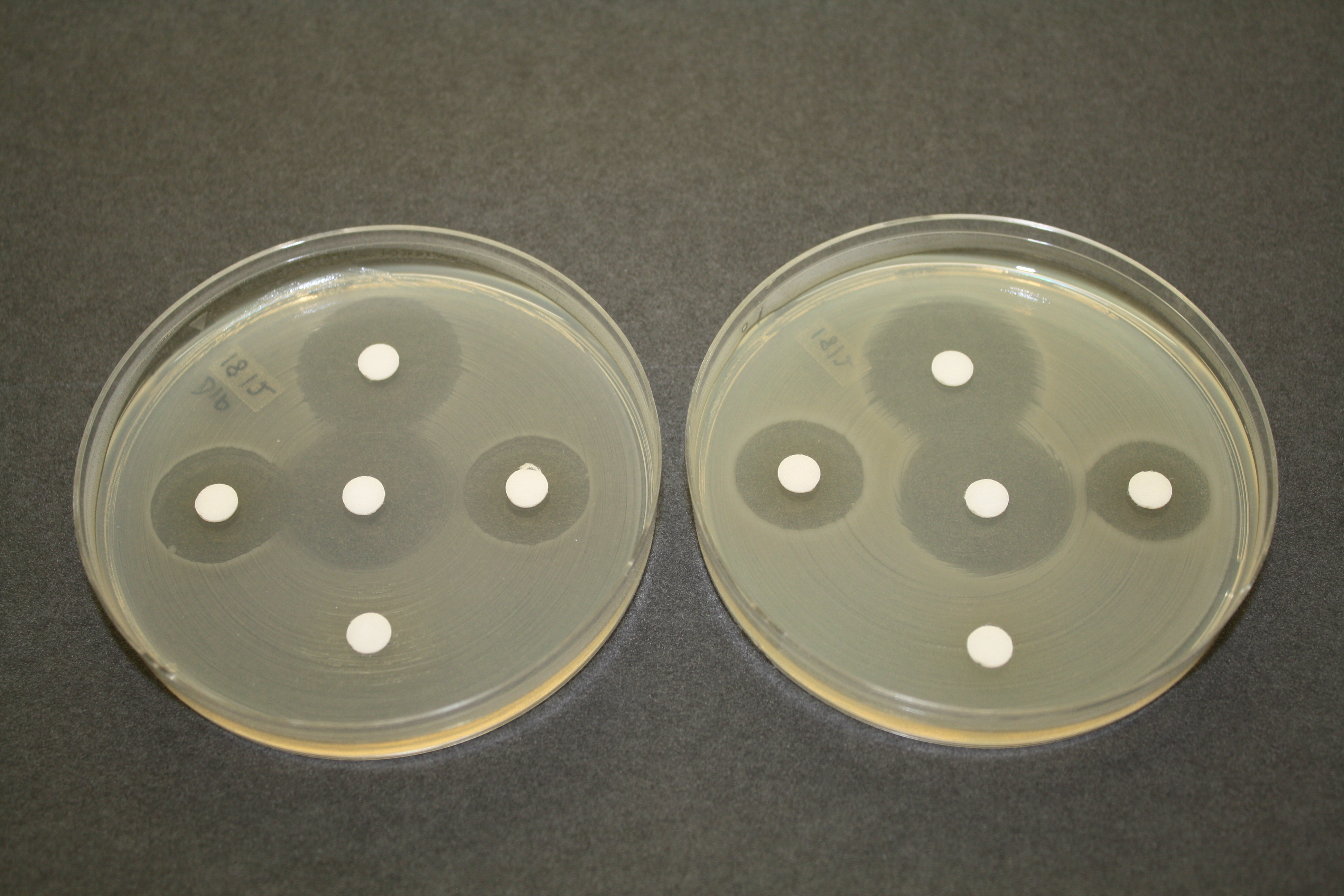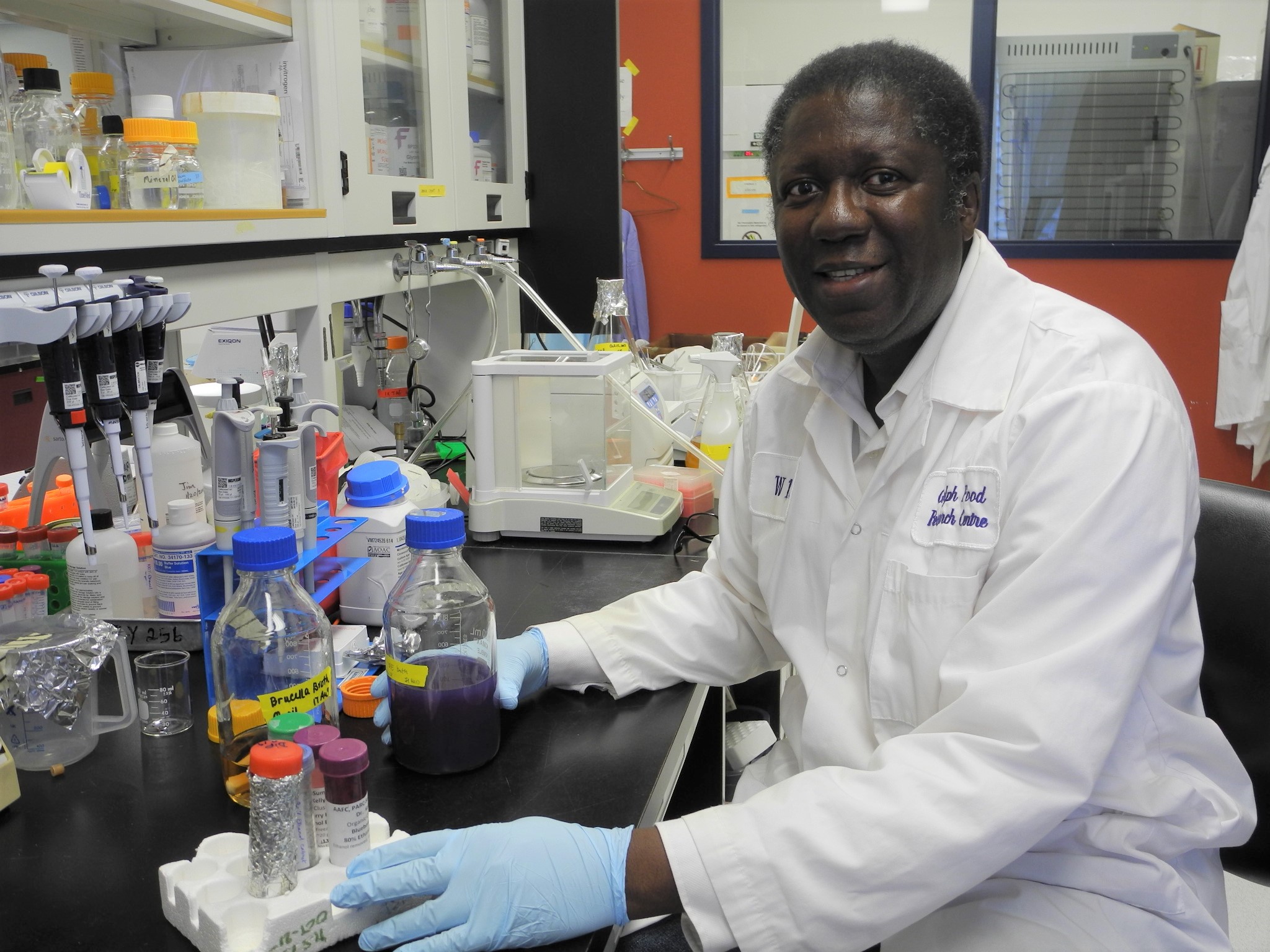Set up an interview
Media Relations
Agriculture and Agri-Food Canada
1-866-345-7972
aafc.mediarelations-relationsmedias.aac@agr.gc.ca
Canadian chicken products contributed $2.5 billion of cash receipts to farming operations in 2016. Agriculture and Agri-Food Canada (AAFC) scientists are working on ways to protect this important sector from diseases, such as bacterial infections, that could devastate flocks and impact human health.
A research team led by Dr. Moussa Diarra at AAFC's Guelph Research and Development Centre, discovered a new antibiotic resistant gene in the bacterium Salmonella enterica Heidelberg. The gene provides resistance against the important broad-spectrum antibiotic, fosfomycin, which is normally given to people as a treatment for urinary tract infections that are resistant to many other antibiotics.
Until now, the scientists had found only limited resistance to the fosfomycin antibiotic among Salmonella species, but this newly discovered gene can dramatically increase resistance to fosfomycin. There are concerns that resistance to this antibiotic could spread if we are not careful about its use.
"Vigilant monitoring for the spread of not only the fosfomycin resistance gene, but also other resistance genes in bacteria, isolated from humans and animals, is needed. In order to decrease antibiotic resistance in animal production, there is an urgent need to develop cost-effective solutions to maintain animal health and productivity while reducing food safety risk and environmental impacts."
- Dr. Moussa Diarra, Research Scientist, Agriculture and Agri-Food Canada
The AAFC science team recommends alternative chicken production techniques and vigilant monitoring of the spread of fosfomycin resistance in bacteria, in order to preserve the use of this powerful antibiotic. The researchers are currently developing products for chickens created from berry wastes that show potential to control antibiotic resistant bacteria while increasing the immunity and productivity of birds.
This research, which is part of the Genomic Research and Development Initiative on Antimicrobial Resistance, plays a critical role in providing a safe and healthy food supply for Canadians.
Key Discoveries/Benefits
- A new antibiotic resistant gene in the bacterium Salmonella enterica Heidelberg provides resistance against an important broad-spectrum antibiotic, fosfomycin.
- Fosfomycin is normally given to people as a treatment for urinary tract infections that are resistant to many other antibiotics.
- This research is vital in promoting a safe and healthy food supply in Canada.
Photo gallery

